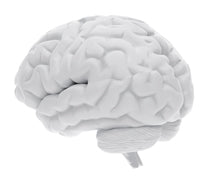
Another link in the gut-brain connection has been discovered, this time in older adults. Scientists at King's College London found daily fiber supplements were able to improve brain function in people over the age of 60 in just 12 weeks.
Researchers wanted to know what impact fiber supplements would have on brain function and muscle strength, two issues critical for healthy aging. While it showed great results regarding the brain, the study found fiber did not affect muscle strength in the participants.
The study involved 36 pairs of twins over the age of 60. The 72 participants were divided evenly and given a daily fiber supplement or a placebo. The double-blind study meant neither the participants or the study administrators knew who was in which group until after the study was complete.
The study participants in the trial group were given inexpensive prebiotic supplements called inulin and FOS. And all study participants did resistance exercises and ate a protein supplement in order to aid in muscle function.
The participants were monitored remotely via video, and were subjected to online questionnaires and cognitive tests. The fiber supplements led to significant changes in gut microbiome composition with a large increase in the bacteria Bifidobacterium.
"We are excited to see these changes in just 12 weeks," said first author Dr. Mary Ni Lochlainn from the Department of Twin Research. "This holds huge promise for enhancing brain health and memory in our aging population. Unlocking the secrets of the gut-brain axis could offer new approaches for living more healthily for longer."
There was no significant difference between the study and control groups when it came to muscle strength, but the group that was give the fiber supplement performed better on tests assessing brain function. One test was the Paired Associates Learning test, which is an early marker for Alzheimer's disease. Other tests measured things such as reaction time and processing speed. Those are important for daily living as they can affect how quickly you react to traffic and how fast your body can correct your balance when you stumble so you don't fall.
"These plant fibers, which are cheap and available over the counter, could benefit a wide group of people in these cash-strapped times," said Claire Steves, professor of aging and health. "They are safe and acceptable too. Our next task is to see whether these effects are sustained over longer periods and in larger groups of people."
Click here to read more in the journal Nature Communications.



